- News
- Reviews
- Bikes
- Accessories
- Accessories - misc
- Computer mounts
- Bags
- Bar ends
- Bike bags & cases
- Bottle cages
- Bottles
- Cameras
- Car racks
- Child seats
- Computers
- Glasses
- GPS units
- Helmets
- Lights - front
- Lights - rear
- Lights - sets
- Locks
- Mirrors
- Mudguards
- Racks
- Pumps & CO2 inflators
- Puncture kits
- Reflectives
- Smart watches
- Stands and racks
- Trailers
- Clothing
- Components
- Bar tape & grips
- Bottom brackets
- Brake & gear cables
- Brake & STI levers
- Brake pads & spares
- Brakes
- Cassettes & freewheels
- Chains
- Chainsets & chainrings
- Derailleurs - front
- Derailleurs - rear
- Forks
- Gear levers & shifters
- Groupsets
- Handlebars & extensions
- Headsets
- Hubs
- Inner tubes
- Pedals
- Quick releases & skewers
- Saddles
- Seatposts
- Stems
- Wheels
- Tyres
- Health, fitness and nutrition
- Tools and workshop
- Miscellaneous
- Tubeless valves
- Buyers Guides
- Features
- Forum
- Recommends
- Podcast
review
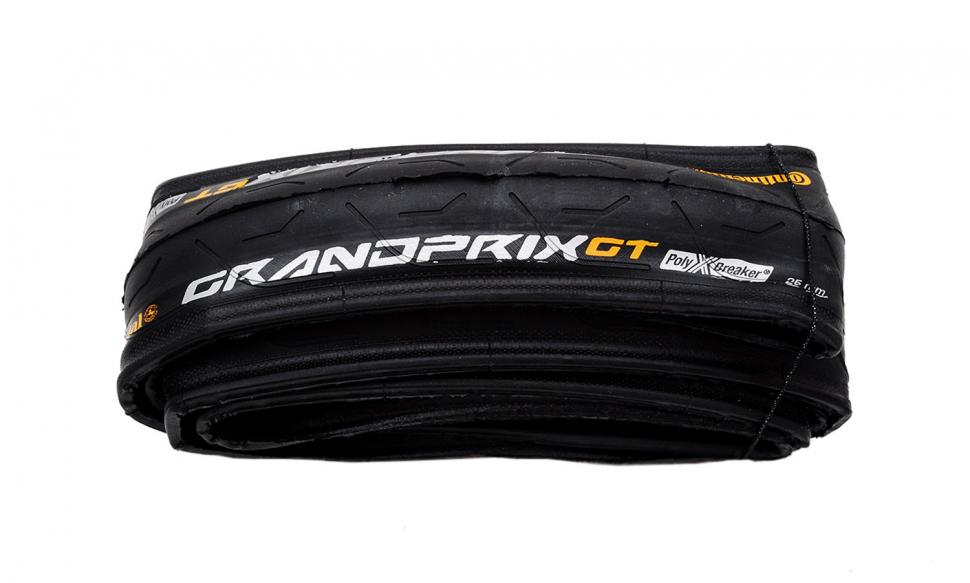 Continental Grand Prix GT tyre 2
Continental Grand Prix GT tyre 2£39.91
VERDICT:
Quick and grippy training rubber with decent puncture protection
Weight:
285g
Contact:
www.i-ride.co.uk
At road.cc every product is thoroughly tested for as long as it takes to get a proper insight into how well it works. Our reviewers are experienced cyclists that we trust to be objective. While we strive to ensure that opinions expressed are backed up by facts, reviews are by their nature an informed opinion, not a definitive verdict. We don't intentionally try to break anything (except locks) but we do try to look for weak points in any design. The overall score is not just an average of the other scores: it reflects both a product's function and value – with value determined by how a product compares with items of similar spec, quality, and price.
What the road.cc scores meanGood scores are more common than bad, because fortunately good products are more common than bad.
- Exceptional
- Excellent
- Very Good
- Good
- Quite good
- Average
- Not so good
- Poor
- Bad
- Appalling
Continental's Grand Prix GT tyre sits between the racing rubber such as the GP4000S and the more heavily armoured Gatorskins. It's a compromise between fast rolling, high gripping race rubber and puncture protection, and that makes it a good training tyre for most conditions.
Available only in a 25mm carcass the Grand Prix GT has a wider PolyX Breaker layer than Continental's race tyres. This tightly-woven polyester is much denser than the tyre carcass and helps to stop thorns and other sharps getting through to the tube. The GT doesn't have the DuraSkin sidewalls of the heavier duty tyres though.
I found puncture resistance to be decent rather than exceptional, although as always in a tyre test you're trusting a bit to the luck of the puncture fairies. I managed to flat the GTs once, the hole in the tube suggesting a thorn although it wasn't retained in the tyre.
The outer compound of the GTs is the same BlackChili rubber that Continental use in their race tyres. "For BlackChili we refine newly developed synthetic rubbers with natural rubber with the proven high-performance tread compound. We use these rubbers with special nanometric carbon soot particles", say Conti on their website, and they claim it's 30% grippier than their other compounds. Which is a lot. And it also has less rolling resistance, and lasts longer. Not bad, eh?
In use I've found BlackChili compound tyres to be about as grippy as they come, and the GTs are no exception. The heavier carcass and puncture layer will affect the tyre's ability to deform, so in absolute terms they shouldn't be as tenacious as a race tyre, but I've not had any issues with grip during testing, across a wide range of surfaces and weather conditions. They're very predictable.
Weight-wise our tyres weighed in at 285g each, which is significantly more than the 250g Conti claim. Either way they're not race-fast, but they're just the ticket for training rides and winter duties, and the extra room in the air chamber is certainly noticable at your backside over a 23mm. Durability wise they seem to be wearing at a similar rate to what we'd expect from a GP4000s, which considering they use the same compound tread isn't a surprise.
Many riders swear by Conti's race tyres for summer use, and switch to GP 4-season rubber when things get a bit more grubby. The Grand Prix GT gives you a bit of extra protection over race rubber while retaining the grip and feel of the top-end tread, but they sacrifice a bit of durability and puncture resistance. It's all down to your priorities, but they're a good fast tyre for less-than-ideal conditions, if not full winter duties.
Verdict
Not as quick as a race tyre and not as durable as winter rubber, but quick and grippy with decent puncture protection.
road.cc test report
Make and model: Continental Grand Prix GT tyre
Size tested: 25mm
Tell us what the product is for, and who it's aimed at. What do the manufacturers say about it? How does that compare to your own feelings about it?
Grand Prix GT- The long lasting tyre. erm, that's it!
Tell us some more about the technical aspects of the product?
* Wider PolyX Breaker
* 3/180 tpi casing for stronger sidewalls
* Long life especially for marathons and multi-day races
* Outstanding grip thanks to the BlackChili compound and a proven tread profile
* available colours (23mm): black, yellow, red, orange, blue, green, white, pink
Rate the product for quality of construction:
9/10
Rate the product for performance:
7/10
Rate the product for durability:
7/10
Rate the product for weight, if applicable:
6/10
Rate the product for comfort, if applicable:
8/10
Rate the product for value:
7/10
Tell us how the product performed overall when used for its designed purpose
They performed well
Tell us what you particularly liked about the product
Good feel, grippy.
Tell us what you particularly disliked about the product
Maybe a touch under-built for British winter conditions.
Did you enjoy using the product? Yes.
Would you consider buying the product? I'd probably choose something a bit more sturdy.
Would you recommend the product to a friend? Depending on their priorities.
About the tester
Age: 40 Height: 190cm Weight: 102kg
I usually ride: whatever I'm testing... My best bike is: Genesis Equilibrium 853
I've been riding for: 10-20 years I ride: Every day I would class myself as: Experienced
I regularly do the following types of riding: commuting, club rides, sportives, general fitness riding, fixed/singlespeed, mtb, Mountain Bike Bog Snorkelling, track
Dave is a founding father of road.cc, having previously worked on Cycling Plus and What Mountain Bike magazines back in the day. He also writes about e-bikes for our sister publication ebiketips. He's won three mountain bike bog snorkelling World Championships, and races at the back of the third cats.
Latest Comments
- thax1 1 sec ago
Favero Assioma power pedals £249 single/ £369 dual on their website.
- eburtthebike 18 min 39 sec ago
Probably designed that way due to the swept path of HGV trailers, which would otherwise go over the pavement.
- chrisonabike 17 min 21 sec ago
Shurely "accidentally and incidentally making a larger profit than anticipated while attempting to help out during a national emergency, at a time...
- eburtthebike 26 min 28 sec ago
Either due to normal fluctuation or reduced levels of cycling i.e. not a real reduction.
- the little onion 1 hour 14 min ago
If the Ventoux wine doesn't do it for you, they also grow very respectable wine on the slopes of the Puy de Dome....
- jamesha100 10 hours 20 min ago
I have been in Belfast for work this week and have been shocked by the congestion around the city centre. There are lots of frustrated drivers...
- David9694 10 hours 42 min ago
Cyclists should be made to have insurance etc https://www.thetelegraphandargus.co.uk/news/24757516.four-vehicles-seize...
- matthewn5 11 hours 39 min ago
A friend in my cycling club has a new Ribble Allroad, I think the model with 105, and when I asked how he was finding it (before reading this...
- check12 13 hours 6 min ago
Get them back? They've never gone away for me, cheap tdf winning bikes on eBay with rim brakes and cheap rim brake aero wheels, just don't tell...
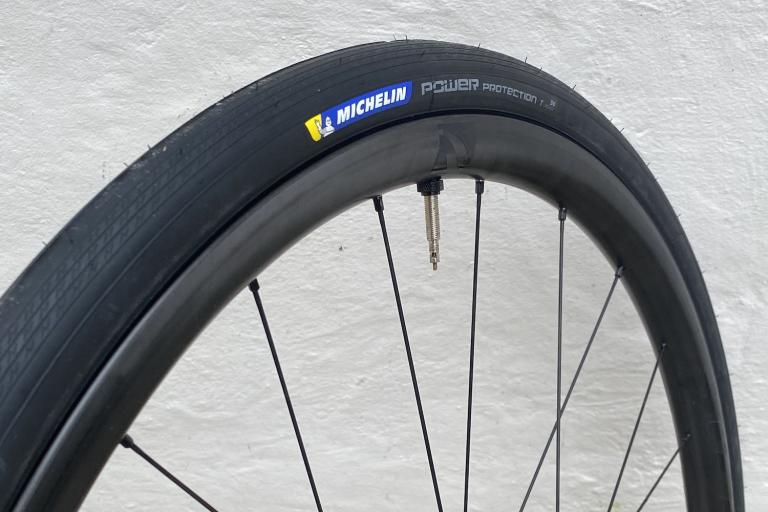
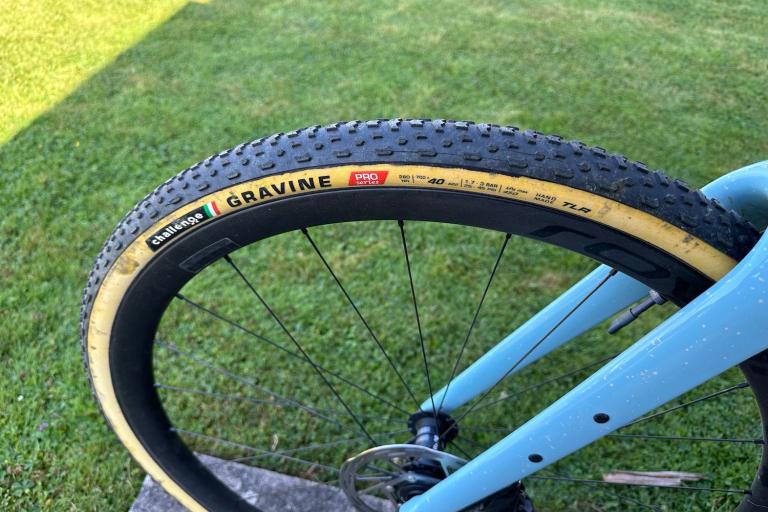
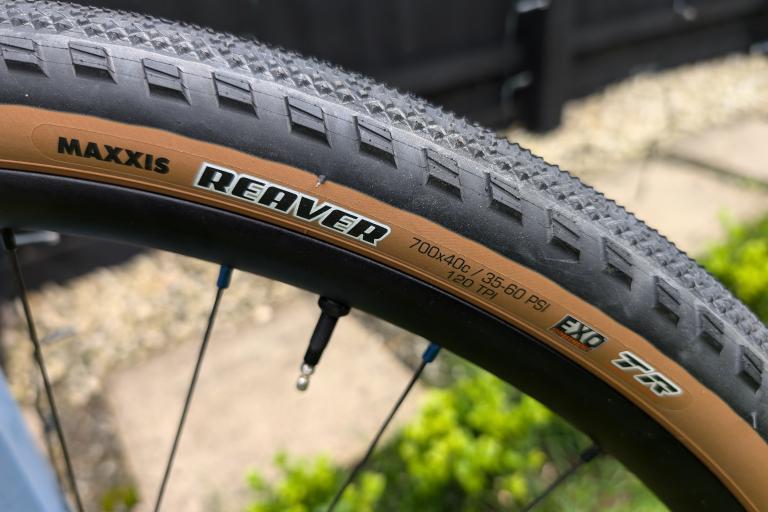
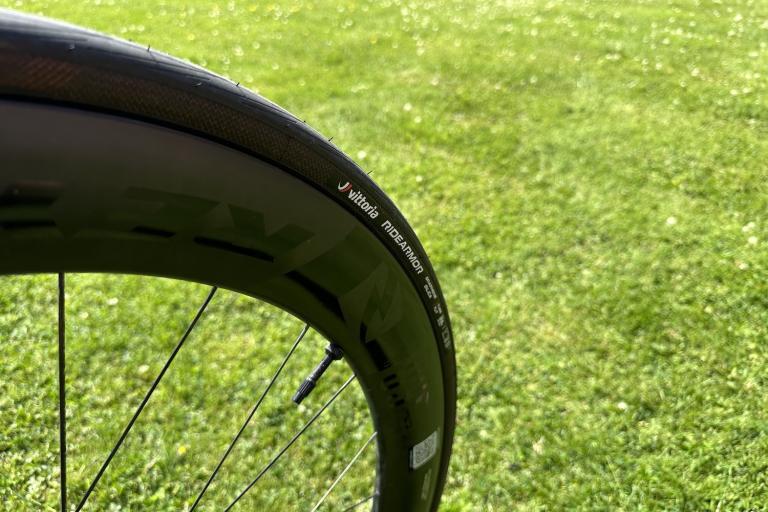
Add new comment
13 comments
These are my favorite tires. In terms of grip and rolling resistance these are very close to gp5000, but much better puncture protection. Since mine has been on my training bike, standing outside all winter, and still have no significant marks, and no punctures, I rate these much higher than gp5000 in terms of value - even if they were actually more expensive than the gp5000 (which they are not).
These are my favorite tires. In terms of grip and rolling resistance these are very close to gp5000, but much better puncture protection. Since mine has been on my training bike, standing outside all winter, and still have no significant marks, and no punctures, and would rate these much higher than gp5000 in terms of value - even if they were actually more expensive than the gp5000 (which they are not).
These are my favorite tires. In terms of grip and rolling resistance these are very close to gp5000, but much better puncture protection. Since mine has been on my training bike, standing outside all winter, and still have no significant marks, and no punctures, and would rate these much higher than gp5000 in terms of value - even if they were actually more expensive than the gp5000 (which they are not).
Also, just noticed... But if these are only available in 25 mm, how do I have 28 mm versions on my summer bike ?
?
It might be that that the only available size 6 years ago when the article was written.
I've now got 4,000km of London commuting on a pair of these, having suffered only one puncture in that time. They show a bit of wear, but are nowhere near the end of their life. Great tyres.
'scuse me, I yam a bear of very small brain....
GP4000S : race tyre of choice
Gatorskins : quality rufty-tufty tyre
But do these GP-GTs sit above or below GP 4 Seasons in the series?
So £80 for a pair of training tyres. What world do you live in on Road C.C. Oh I forgot you get yours free to test and write a review.
They live in a world where these tyres exist, they cost £80 a pair, and they've been sent some for review. They've also reviewed plenty cheaper ones than these.
It's impossible to make direct comparisons, I know, but a Clement Criterium (high quality training/budget racing tyre) cost £12.99 30 years ago. Which would be £37.17 today, according to the inflation calculator on a well known financial website.
And, for a budget tyre comparison, a Lion GT30 (typical training tyre), again in 1983, cost £4.99, which would be £14.28 in today's money.
I'd say that tyre inflation (scuse the pun) has kept pace with RPI over the last 30 years. And of course, there's better technology in the tyres of today.
Conti is my preferred supplier of rubber (ooer!) but this is getting confusing now. I thought this was pretty much what the GP 4 Season tyre was for? Now I am more confused than before.
The GP 4 Seasons is a winter tyre with rubber that's designed to grip the road when it's very cold. They have fairly high rolling resistance. These are my summer bike tyre of choice and are made from the brilliant Black Chili compound which is grippy and rolls brilliantly.
Ha ha the secret is out! Been buying the 24-mm version of this (2012 MY) for less than €15 a pop at the German discounters for a couple of years now! Gives away almost nothing to the Force/Attack combi. And in fact can be swapped in for the 24-mm Force on the rear, which usually wears out before the 22-mm Attack.